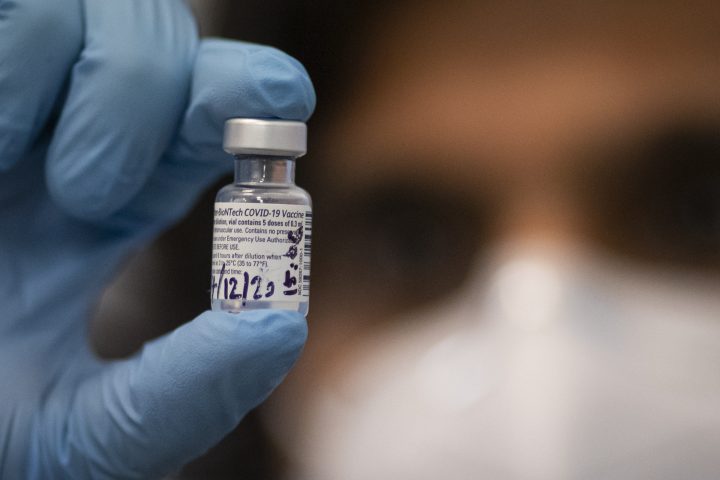We are finally seeing some light at the end of the pandemic tunnel with coronavirus vaccine rollout underway in North America, Europe and parts of East Asia.

But it is far from a collective “we,” with 87 per cent of the world’s population not likely to receive vaccination within the next 12 months. At best, only one in 10 people from 67 of the world’s poorest and developing countries will be vaccinated by the end of 2021, according to a recent analysis by the People’s Vaccine Alliance. It may be as late as 2024 until the vast majority of nations across the globe have access to COVID-19 vaccines.
The World Health Organization’s COVAX program is the primary global scheme to vaccinate people in poor and middle-income countries around the world against the coronavirus. COVAX has thus far raised $2.1 billion and says it needs an additional $4.9 billion to meet its target of vaccinating at least 20 per cent of the people in poor countries next year. The program is also receiving funds from private donors, most notably the Bill and Melinda Gates Foundation.
We have heard the rhetoric about COVID-19 being the “great equalizer” that discriminates no one and plagues us all. Consequently, the World Health Organization has repeatedly expressed the need for a global plan to stop the spread and start the recovery process. But now with a vaccine in our grasp, the real litmus test of global solidarity is here and it appears there is a very high risk of failure when it comes to such relief on a global scale.
According to The People’s Vaccine Alliance, there are two major factors contributing to the deficit. The first stems from the so-called “hoarding” of the vaccine by wealthy nations and then there are the limits on vaccine production due to intellectual-property controls.

Wealthy countries have been on a vaccination shopping spree for months now, hedging their bets with various distributors and securing more doses than their populations.
“Rich countries have enough doses to vaccinate everyone nearly three times over, whilst poor countries don’t even have enough to reach health workers and people at risk,” said Dr. Mohga Kamal-Yanni of the PVA. Canada alone has secured enough dosages to vaccinate our citizens five to six times over, if all of the pre-ordered vaccinations are approved.
“It makes absolutely no moral sense to have excess doses of vaccines in certain countries and absolutely no doses of vaccines in other areas of the world,” said John Nkengasong, the head of the Africa Centres for Disease Control and Prevention, according to CNN.
When you are intimately linked to poverty you see beyond the statistics. My father grew up very poor in India. His father died at a young age of asthma. It was treatable even then, but deadly if medication is a luxury unaffordable. Such was his fate, leaving behind a young widow with four children.
When I see the tallies of the COVID-19 death counts, I don’t think about the numbers, I think about the single individuals and the loved ones they are leaving behind. They matter to somebody. My grandfather, despite not having a penny to his name, mattered. Just as these many people who will not see a vaccine for several years and potentially lose their lives in the waiting game, matter.
In the grand scheme, the $4.9 billion that COVAX needs in order to meet its vaccination targets for the upcoming year doesn’t seem too lofty an ambition, when we factor in contribution potential from wealthy countries and individuals. There are billionaires like Bill Gates or Carlos Slim who has helped fund a deal for 150 million doses of the AstraZeneca vaccine in Latin America, drawing on manufacturing capacities in Argentina and his native Mexico.
But everyone is not on board. The United States, China and Russia have declined to help with COVAX financing. And while Canada and the EU have been generous donors to global efforts, we are also undermining those efforts by hoarding supply.
Perhaps if the moral argument can’t win over solidarity, the public health argument will. Eradicating COVID-19 everywhere is an epidemiological necessity.
“Until everybody is protected, nobody can be safe. We are living in an interconnected world and even if those countries can protect themselves, they will be living on an island,” said Dr. Richard Mihingo, the coordinator of Immunization and Vaccine Development at the World Health Organization (WHO) Africa region.

Medical experts and scientists in Africa remember the decades-long, pain-staking fight to access life-saving drugs to combat HIV/Aids long after they were available in the West. More recently, despite lip service on global solidarity, the H1N1 flu vaccine arrived in Africa many months after the height of the epidemic in 2009. There are ample examples from our distant past, but also contemporary days of life-saving drugs made available to the wealthy but not to the poor.
As we race to put this pandemic behind us and return to normalcy, we are reminded of the world’s haves and have-not. While we move full steam ahead on our vaccination distribution plans here in Canada, I’ve been thinking a lot about what that “normal” is and how we seem so casually comfortable with past inequalities and easing right back to them.
Did I expect this virus to result in our world leaders and wealthiest citizens sitting around the campfire singing Kumbaya together? Of course not.
But did I perhaps think these unprecedented past several months of extreme loss, sacrifice and pain on such a mass scale would cause some inner reflection, and an internal shift in all of us to strive to be better global citizens, and see this is an opportunity to balance some of the scales of inequity, maybe I did — naively so.
Meera Estrada is a cultural commentator and co-host of kultur’D! on Global News Radio 640 Toronto.



Comments